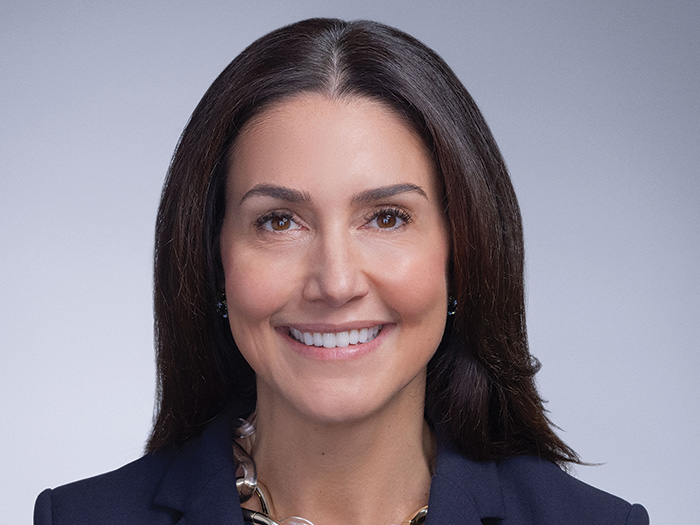7 Avenues Employers Can Take to Bolster Diversity, Equity and Inclusion Efforts
Diversity, equity and inclusion (DEI) efforts influence every aspect of a company’s success, from risk management (including legal liability) to organizational culture, meeting customer needs and successful talent management.
Simply put: A company with a strong DEI foundation is more successful. In fact, research shows companies that lead in this arena are at least 25% more likely to be profitable and avoid performance penalties experienced by those that lag.
While a DEI focus is not new, these efforts continue to gain momentum as pressure to act builds from inside and outside company walls.
A recent example: The House Committee on Financial Services called for the country’s largest financial investment firms to report diversity and inclusion efforts, and an increasing number of lawsuits have been filed against companies by their own stakeholders demanding more progressive DEI policies.
The DEI umbrella includes equity for people with disabilities — as highlighted recently by the #WeThe15 movement in 2020 — and noted as part of DEI strategies that should not be overlooked by a recent Forbes article.
While your company might never be forced to publicly report DEI efforts, projections for an increasingly diverse population through 2060 emphasize the need for employers to consider how DEI policies affect talent management and whether they have created inclusive, diverse environments that are equitable and fair.
It’s especially important with changing expectations of employees, who seek more flexible work and more equitable compensation and treatment.
And companies are responding.
USAA, a provider of insurance, banking and investment solutions, raised its minimum wage to $21 in October and enhanced benefits including a childcare reimbursement program, a new paid leave program for family events, and a family support benefit of up to $20,000 to cover adoption, surrogacy and infertility treatments.
Pat Teague, chief human resources officer at USAA, said in a company press release that changes were made to cultivate a diverse and inclusive environment for all employees.
Changing Expectations
This move — and many others — shows that employers are investigating different ways to show employees they value contributions and encourage longer tenure.
For example, Amazon announced an expansion of educational benefits for U.S.-based hourly employees to enroll in fully paid bachelor’s degree programs to attract tens of thousands of workers and retain thousands hired during the pandemic.
These types of investments in employees are timely considering that it’s increasingly difficult to hire qualified people.
By now we have all heard about “the Great Resignation” that has been caused by many things, including wage and compensation issues, inflexible work environments and lack of career advancement. But employers can help by creating and supporting diverse, equitable and inclusive environments that attract and retain employees.
Investing in Employees
A key component is open and honest communication. Here are a seven suggestions to ensure your benefits packages appeal to a diverse workforce:
1) Consider flexible work arrangements to meet the needs of different family situations.
2) Consider benefit packages that are fair and equitable to all employees of all races and genders.
3) Consider benefit packages that are not one-size-fits-all and that address health issues affecting women, workers with disabilities, transgender employees and same-sex domestic partners or domestic partners.
4) Ensure your mental health programs support individuals with disabilities or neurological differences.
5) Offer financial assistance and time to attend degree and certificate programs, management training and upskill opportunities that reflect diverse interests and needs.
6) Consider offering more predictable schedules. Many hourly employees — especially in retail environments — work erratic schedules, which affects family life and can make education or other career enhancement activities difficult to manage.
7) Encourage work-life balance. While a predictable schedule can help balance life on and off the job, employers should consider paid time off, emergency childcare, caregiving for aging parents, and dependents, and remote work to help employees achieve balance.
While these benefits have been available to professionals and managers, companies are starting to consider extending them to non-exempt or hourly employees as part of a larger retention strategy influenced or, ideally, driven by DEI efforts.
Assessing DEI Efforts
During the last two years, we have seen myriad changes in employee expectations and management demands.
One upshot is that more employers recognize DEI investments as a valuable tool to ensure alignment between an organization’s mission, vision, values and its practices. And, perhaps equally important, companies are reviewing and assessing their efforts. A strategic approach is essential.
For those starting out, consider resources like the Women’s Empowerment Principles, which was published in 2010 with 39 signatories and now has more than 4,500. The tool has a self-assessment that evaluates a company’s gender equity performance and a transparency and accountability framework guide.
This type of resource — along with a growing number of DEI certificate programs — can guide company efforts, implementation and frequent evaluation to keep teams on the right path.
It’s also a good practice to check in with insurance carriers that offer employment practices liability and directors and officers insurance to see if they provide diversity-related premium discounts.
While DEI can be an emotional issue, more executives are acknowledging and starting to appreciate the business case for it. In a recent DMEC webinar, a MetLife professional mentioned DEI efforts as part of the company’s work to “enhance benefit packages for holistic well-being — physical, financial, social, mental.”
It is rewarding to hear DEI efforts are resonating with business leaders across industries and departments and to see its effects reflected in higher profits and greater success.
And for risk professionals, it is comforting to know companies are acting on what is right, fair and equitable and what ensures diverse and inclusive workplaces. &










